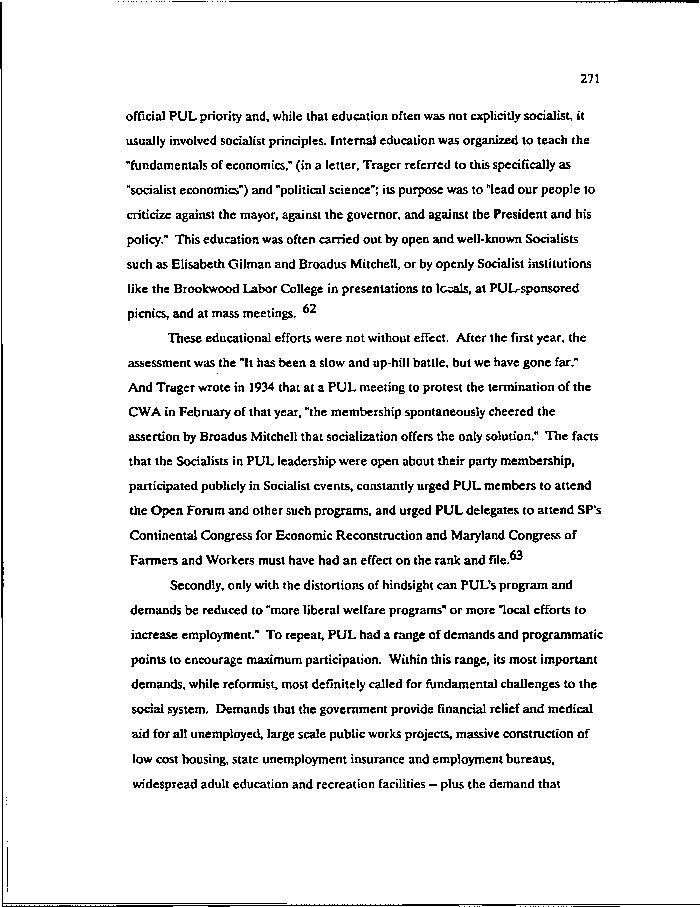|
271
official PUL priority and, while that education often was not explicitly socialist, it
usually involved socialist principles. Internal education was organized to teach the
"fundamentals of economics," (in a letter, Trager referred to this specifically as
"socialist economics") and "political science"; its purpose was to "lead our people to
criticize against the mayor, against the governor, and against the President and his
policy." This education was often carried out by open and well-known Socialists
such as Elisabeth Oilman and Broadus Mitchell, or by openly Socialist institutions
like the Brookwood Labor College in presentations to locals, at PUL-sponsored
/v?
picnics, and at mass meetings.
These educational efforts were not without effect. After the first year, the
assessment was the "It has been a slow and up-hill battle, but we have gone far."
And Trager wrote in 1934 that at a PUL meeting to protest the termination of the
CWA in February of that year, "the membership spontaneously cheered the
assertion by Broadus Mitchell that socialization offers the only solution." The facts
that the Socialists in PUL leadership were open about their party membership,
participated publicly in Socialist events, constantly urged PUL members to attend
the Open Forum and other such programs, and urged PUL delegates to attend SP's
Continental Congress for Economic Reconstruction and Maryland Congress of
Farmers and Workers must have had an effect on the rank and file.
Secondly, only with the distortions of hindsight can PUL's program and
demands be reduced to "more liberal welfare programs" or more "local efforts to
increase employment." To repeat, PUL had a range of demands and programmatic
points to encourage maximum participation. Within this range, its most important
demands, while reformist, most definitely called for fundamental challenges to the
social system. Demands that the government provide financial relief and medical
aid for all unemployed, large scale public works projects, massive construction of
low cost housing, state unemployment insurance and employment bureaus,
widespread adult education and recreation facilities - plus the demand that
|

